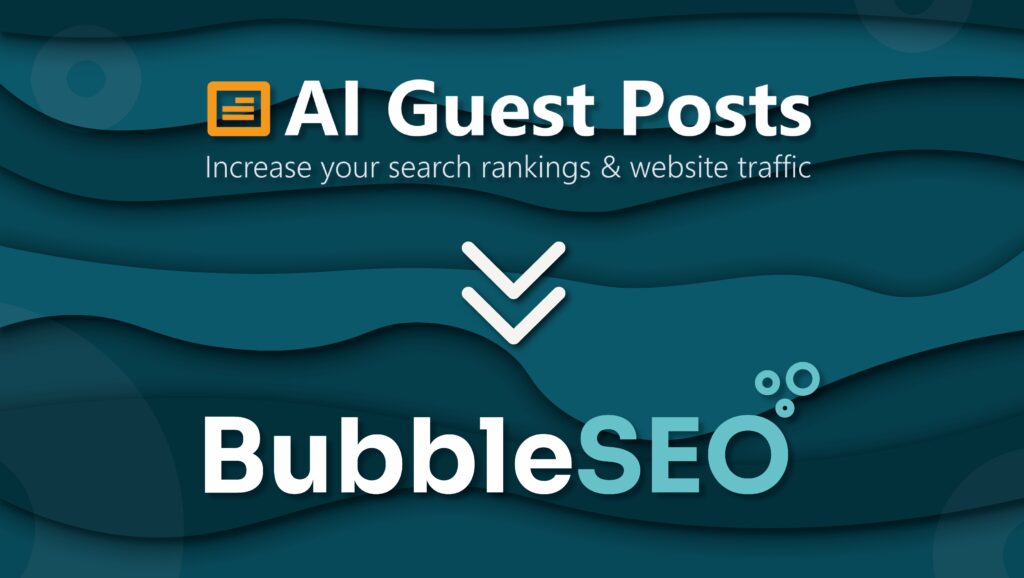
A future-proof SEO strategy involves staying ahead and adapting to search engine changes

Link building is one of the most effective ways to enhance your website’s authority and improve your search engine rankings on Google. It refers to the process of acquiring hyperlinks from other websites to your own. These links act as endorsements, signalling to Google that your site is a trusted and valuable resource. The key is quality over quantity. Links from websites with high domain authority and page authority carry far more weight. They can significantly strengthen your SEO strategy and improve your organic visibility. Today, high-quality backlinks are a core ranking factor in Google’s algorithm—making them crucial to any digital marketing strategy. The SEO Benefits of High-Quality Backlinks There are numerous advantages to building high-quality backlinks: Referral traffic from authoritative sites Improved domain authority and site trustworthiness Faster indexing by search engines like Google Search engines view backlinks as signals of trust and relevance. According to Backlinko, pages with more backlinks tend to rank higher than those without. However, link building must be done strategically. Poor practices can damage your site’s credibility and search performance—something we’ll cover shortly. How Link Building Boosts Brand Authority & Trust Beyond SEO metrics, link building also contributes to brand visibility and credibility. Gaining placements on respected platforms and publications increases your brand’s exposure to new audiences. When potential customers see your brand associated with reputable websites, it strengthens their perception of your legitimacy and authority. In essence, every high-quality backlink reinforces your positioning as a trusted voice within your industry, building long-term trust with both search engines and users alike. Common Link Building Mistakes to Avoid Just as with other aspects of SEO, link building done poorly can have serious consequences. Here are common pitfalls to avoid: Keyword-stuffing anchor text: Your anchor text should feel natural and user-friendly—not overly optimised with keywords. Low-quality or irrelevant links: Links from spammy or irrelevant sites can trigger Google penalties and harm your rankings. Lack of industry relevance: If you’re a marketing agency, ensure your backlinks come from sources within the marketing or business space. Google prioritises topical relevance when assessing link value. For more on ethical link building practices, explore Google’s official link scheme guidelines. Long-Term Gains: Why Consistent Link Building Pays Off Like most elements of SEO, link building is a long-term game. One high-quality link won’t skyrocket your rankings overnight—it requires consistency and strategic execution. In fact, Vazoola reports that over 50% of SEO professionals see measurable results from link building within 3 to 12 months. Consistent link acquisition helps you: Outrank competitors Build sustainable traffic Establish your site as a go-to resource While some businesses may not have the bandwidth to maintain a consistent strategy, those who invest in link building reap clear and lasting benefits. Partnering with Experts: How BubbleSEO Can Help At BubbleSEO, we specialise in link insertion services designed to support your SEO and digital marketing goals. We collaborate with 12 trusted in-house publishing brands across a diverse range of industries—from construction and beauty to finance—ensuring you get backlinks from the most relevant and authoritative sources. We don’t just stop at link building. Our services also include guest posting and content writing, giving your business a well-rounded SEO strategy tailored to your audience. Whether you're new to SEO or looking to scale up your efforts, our expert team is here to support you every step of the way. Final Thoughts: Is Link Building Worth the Investment? In short—absolutely. Link building is one of the most valuable investments you can make for your website’s long-term success. A consistent, strategic approach will strengthen your online visibility, boost brand trust, and drive targeted traffic. While it’s possible to manage link building internally, partnering with experienced SEO professionals like BubbleSEO can help you save time and maximise results. If you're ready to elevate your SEO strategy, get in touch with us today to learn how we can support your growth.
Link building is one of the most effective ways to enhance your website’s authority and improve your search engine rankings on Google. It refers to the process of acquiring hyperlinks from other websites to your own. These links act as endorsements, signalling to Google that your site is a trusted and valuable resource.
The key is quality over quantity. Links from websites with high domain authority and page authority carry far more weight. They can significantly strengthen your SEO strategy and improve your organic visibility.
Today, high-quality backlinks are a core ranking factor in Google’s algorithm—making them crucial to any digital marketing strategy.
There are numerous advantages to building high-quality backlinks:
Search engines view backlinks as signals of trust and relevance. According to Backlinko, pages with more backlinks tend to rank higher than those without.
However, link building must be done strategically. Poor practices can damage your site’s credibility and search performance—something we’ll cover shortly.
Beyond SEO metrics, link building also contributes to brand visibility and credibility.
Gaining placements on respected platforms and publications increases your brand’s exposure to new audiences. When potential customers see your brand associated with reputable websites, it strengthens their perception of your legitimacy and authority.
In essence, every high-quality backlink reinforces your positioning as a trusted voice within your industry, building long-term trust with both search engines and users alike.
Just as with other aspects of SEO, link building done poorly can have serious consequences. Here are common pitfalls to avoid:
For more on ethical link building practices, explore Google’s official link scheme guidelines.
Like most elements of SEO, link building is a long-term game. One high-quality link won’t skyrocket your rankings overnight—it requires consistency and strategic execution.
In fact, Vazoola reports that over 50% of SEO professionals see measurable results from link building within 3 to 12 months.
Consistent link acquisition helps you:
While some businesses may not have the bandwidth to maintain a consistent strategy, those who invest in link building reap clear and lasting benefits.
At BubbleSEO, we specialise in link insertion services designed to support your SEO and digital marketing goals.
We collaborate with 12 trusted in-house publishing brands across a diverse range of industries—from construction and beauty to finance—ensuring you get backlinks from the most relevant and authoritative sources.
We don’t just stop at link building. Our services also include guest posting and content writing, giving your business a well-rounded SEO strategy tailored to your audience.
Whether you’re new to SEO or looking to scale up your efforts, our expert team is here to support you every step of the way.
In short—absolutely.
Link building is one of the most valuable investments you can make for your website’s long-term success. A consistent, strategic approach will strengthen your online visibility, boost brand trust, and drive targeted traffic.
While it’s possible to manage link building internally, partnering with experienced SEO professionals like BubbleSEO can help you save time and maximise results.
If you’re ready to elevate your SEO strategy, get in touch with us today to learn how we can support your growth.
Grow your business online with content marketing solutions from Bubble SEO today.
Place An Order
Content marketing is the creation of information and content and how this can be shared across different formats

With Black Friday almost upon us, we have put together some tips of how you can get ahead with your socials

We're excited to announce that AI Guest Posts has undergone a transformative rebranding and is now known as Bubble SEO. This strategic move has allowed the business to develop within the digital landscape and highlight our commitment to providing digital marketing solutions tailored to enhance online visibility and engagement for our customers. Bubble SEO remains dedicated to delivering high-quality, targeted content and effective SEO solutions that align with evolving digital marketing trends. Here is a little more information about our brand and its services. Our services: At Bubble SEO, we specialise in three core services, with content writing being a new feature to the website: Guest Posting: Which aims to enhance your online presence with high-quality guest posts on authoritative websites, driving traffic and boosting your SEO rankings. Link Building: Helps build a robust backlink profile with strategic link building services that improve your website's authority and visibility. Content Writing: Provides engaging content for your audience with compelling content tailored to your brand voice and SEO needs. Benefits of Bubble SEO: We have now made changes to the booking process to simplify this, and updated the customer dashboard section in the hope to improve our existing values below: Enhanced Service Quality: With our rebranding comes a renewed focus on delivering top-notch services that exceed your expectations. Improved User Experience: Our new website offers a streamlined interface, making it easier for you to navigate and access our services. Expanded Network: Benefit from our expanded network of partner websites, ensuring broader outreach and better opportunities for your business. Loyalty Rewards: As a token of our appreciation for the continued support of our bookers, we have now introduced loyalty rewards: Exclusive Discounts: Enjoy special discounts as a loyal Bubble SEO customer, with the more points you acquire, the more exciting offers you will unlock. We're thrilled about this new chapter as Bubble SEO and look forward to continuing to be your trusted partner in achieving your digital marketing goals. Stay tuned for more exciting updates and announcements! Discover the new Bubble SEO and elevate your online presence today! Jennifer Hobson – Digital Marketing [email protected] Heather Ryan – Business Development [email protected]

Since 2020, remote working has become increasingly popular. During the COVID-19 pandemic, many companies adopted a work-from-home approach—and several still offer this flexible arrangement today. While some people thrive in a home-based setup, others may find it more distracting, which can impact productivity. That’s why it’s essential to have strong time management strategies in place to support your workflow. Here are six practical productivity hacks to help you stay focused and efficient while working from home. 1. Time Blocking Time blocking isn’t a new concept, but it’s a highly effective method for managing large workloads. It involves assigning dedicated time slots to specific tasks so you can give each one your full attention. These time blocks don’t always need to be task-specific. For example, you might allocate: 1 hour for admin 2 hours for deep work (with notifications turned off) 30 minutes for breaks or creative thinking Research shows that having a clear daily schedule improves both time and task management. 2. The Power Hour Start your day with a ‘Power Hour’. Use this time to tackle a few quick wins—whether it’s checking emails, finishing a daily task, or getting your most difficult job out of the way. Completing your hardest task first can help reduce procrastination and anxiety, freeing up the rest of your day for more focused work. You can read more about this approach in Brian Tracy’s "Eat That Frog". 3. Stick to Office Hours When your work and home spaces blend, it’s easy to let boundaries slip. But just because your laptop is always nearby doesn’t mean you should always be working. Try putting your laptop away at the end of the day and avoid checking emails after hours. If possible, set up a dedicated workspace to mentally separate work from leisure. Let your team know your availability too, so they’re not messaging you outside your set hours. Tools like Google Calendar or Clockify can help you reinforce your work schedule and set healthy boundaries. 4. The Two-Minute Rule It’s tempting to delay small tasks by telling yourself, “I’ll do it later.” But if a task takes less than two minutes, do it immediately. This keeps small requests from piling up and becoming overwhelming. This method is inspired by David Allen’s “Getting Things Done” productivity framework and is a simple but powerful way to beat procrastination. 5. Plan Your Next Day Before logging off, take 10–15 minutes to plan for tomorrow. Starting the day with a clear idea of what you want to achieve helps you stay focused and motivated. Try writing a short to-do list, prioritising tasks, or blocking out time for key projects. You can use planning tools like Todoist or Trello to support this routine. 6. Learn to Say “No” Working from home sometimes makes people feel like they can stretch their hours—after all, there’s no commute. But it’s still important to respect your own time and energy. If you’re asked to take on extra tasks or meetings outside your working hours, don’t be afraid to decline politely. Try offering an alternative time or solution that fits within your schedule. Setting clear boundaries protects your productivity and wellbeing in the long run. Final Thoughts Remote working gives you the flexibility to create a routine that suits your lifestyle. By integrating just one or two of these productivity hacks into your work-from-home setup, you can boost focus, reduce stress, and make your day more manageable. Remember: productivity doesn’t mean doing more—it means doing what matters most, with intention.

SERP stands for Search Engine Results Page. This is the page that a search engine displays to the user when they submit a search query. For example, if you go to Google and type in ‘what is martech?’ and press enter or click the search emblem, the search engine results page (or SERP) will be the pages that are returned to you.

If you work in SEO, you’ll already know how unpredictable the last few years have been. Google keeps tightening its understanding of quality, AI keeps reshaping the search experience, and users are far more selective about the content they trust. Moving into 2026, the direction of travel is becoming clearer. We’re heading towards a search landscape built around authority, clarity and genuinely helpful information. Below is a grounded look at the trends that will have the biggest influence this next year, based on what marketers are already seeing day to day. 1. AI-Assisted Search Isn’t a Side Feature Anymore AI generated summaries and rapid-fire answers are now a normal part of the search journey. For many queries, users get what they need before they ever reach the organic results. That puts pressure on brands to create material that AI systems feel confident referencing. One of the strongest signals you can build is topical authority. Many teams are supporting this by investing in guest posting campaigns that place their expertise in front of wider audiences. When your brand appears on respected sites, AI models and search engines both treat you as more trustworthy. Google has been explaining more about how generative elements in Search are evolving. Its recent overview on how Google uses AI in Search gives a good sense of the direction things are going. 2. E E A T Is Becoming Harder to Fake Google’s focus on expertise, experience, authority and trust keeps getting sharper. It has become much more effective at spotting the difference between lived experience and content that has been pieced together from existing articles. This is why brands are giving older content a fresh review. Adding clearer author input, speaking to specialists and including practical examples go a long way. A structured process such as the BubbleSEO content refresh checklist can help teams update pages in a consistent way. If you want a deeper look at how Google evaluates trust, the Search Quality Evaluator Guidelines remain one of the best sources available. 3. Personalised Search Shapes User Journeys Search results now vary widely from person to person. Google tailors results based on browsing behaviour, location, device type and more. Two people searching the same phrase can see very different sets of pages. This is one reason diverse formats matter. Videos, comparison charts and helpful visuals often earn more clicks than plain text. Backlinko’s analysis of user behaviour patterns, highlighted in their latest SEO research, reinforces the idea that layout and format heavily influence engagement. 4. First Party Data Quietly Becomes a Power Move With third party tracking disappearing and privacy expectations rising, businesses are putting more emphasis on information users choose to share with them. SEO plays an important role because organic visitors tend to arrive with more intent. Guides, templates and practical resources still work incredibly well for building owned audiences. Recent findings from Think with Google show how much value businesses are placing on consent-based data. 5. User Experience and Accessibility Start Carrying More Weight Google is paying closer attention to how easy sites are to use. Core Web Vitals haven’t gone away, but accessibility, layout quality and clarity are getting more emphasis. Brands that simplify their designs and make pages easier to navigate often see improvements. Research from WebAIM’s accessibility analysis shows that many websites still struggle with basic issues. Businesses that fix these problems early tend to perform better because fewer competitors are doing the same. 6. Video and Visual Search Keep Eating Traditional Search YouTube and TikTok have effectively become search engines. Many users prefer short visual explanations over long written guides. Google has responded by pulling more video elements into its main results, especially for commercial queries. Simple visual assets can make a surprising difference. Even a short filmed walkthrough or screen capture can help a page stand out. Reports from Pew Research show a clear rise in video-led search habits, and brands that embrace this shift are seeing stronger engagement. 7. Local Search Zooms Right In Local SEO is becoming more granular every year. Instead of broad city level rankings, results increasingly focus on smaller neighbourhoods, movement patterns and real time local behaviour. Accurate listings, high quality reviews and well structured location pages are now essential. BrightLocal’s ongoing insights, shared in their Local Consumer Review Survey, highlight how much influence precise information now has on visibility. 8. Human Creativity Matters Again With AI generated writing everywhere, the web is starting to feel repetitive. Google understands this, and it’s rewarding content with personality, perspective and originality. Teams that mix AI efficiency with human insight usually get the strongest results. Original research, specialist commentary and real-world examples create a voice that stands out from the noise. Final Thought SEO in 2026 is shifting towards depth and authenticity. Brands that lean into expertise, create genuinely helpful content and invest in solid technical foundations are in a strong position, even as search continues to evolve.

In the ever-evolving landscape of digital marketing, staying ahead in search engine rankings is a critical goal for businesses and outreach

In the ever-evolving world of digital marketing, link building remains a cornerstone strategy for improving search engine rankings and driving organic traffic. As we step into 2025, staying ahead of the curve means adopting innovative and creative techniques to ensure your website stands out. Here are some fresh strategies to enhance your link-building game, with insights into how platforms like Bubble SEO can support your efforts. 1. Leverage Digital PR for High-Authority Backlinks Digital PR combines traditional public relations tactics with modern SEO strategies. By creating newsworthy content, such as original research or impactful stories, you can attract links from reputable media outlets. Partnering with agencies like CoverageBook can help you measure the effectiveness of your campaigns and identify opportunities to improve. 2. Interactive Content for Engagement and Links Interactive content, such as quizzes, calculators, and infographics, naturally attracts backlinks as people share them across platforms. Tools like Canva and Visme enable you to create visually appealing assets that engage audiences and encourage organic link sharing. 3. Focus on Resource Link Building Identify resource pages within your niche and pitch your content as a valuable addition. For instance, if you specialize in marketing, an in-depth guide on AI-driven advertising trends could be an excellent resource for industry-specific pages. 4. Utilise Niche Directories and Industry Awards Niche directories and awards sites provide an opportunity to gain high-quality backlinks. Platforms like Clutch or even industry awards run by Bubble SEO can increase your credibility and link profile while showcasing your expertise. 5. Collaborative Content and Guest Posting Collaborating with influencers or other businesses in your industry can lead to mutually beneficial backlink opportunities. Guest posting remains a tried-and-true method, but ensure that your content provides unique value. Bubble SEO’s guest posting services can connect you with relevant publishers for impactful link placements. 6. Repurpose Existing Content Turn blog posts into videos, podcasts, or presentations to target different audiences. Platforms like SlideShare allow you to share these resources, generating backlinks from users who embed your content on their sites. 7. Monitor Competitor Backlinks Analyzing your competitors’ backlinks can reveal untapped opportunities. Tools like Ahrefs and SEMrush can help identify which sites link to your competitors, enabling you to reach out with your own content. 8. Host Webinars or Virtual Events Webinars and virtual events provide valuable educational content that attendees may link to when sharing their insights. Record these sessions and offer on-demand access, creating evergreen content that continues to generate backlinks over time. 9. Create Tools or Templates Develop free tools or templates that solve a common problem in your industry. For example, marketing calculators or downloadable content calendars can attract backlinks from businesses and individuals referencing your resources. 10. Engage in Community Forums and Q&A Sites While not a direct link-building strategy, contributing valuable insights on forums like Reddit or Quora can lead to organic backlinks. These platforms allow you to build relationships and establish authority in your niche. Conclusion Link building in 2025 is all about creativity, authenticity, and value-driven content. By adopting these innovative techniques, you can stay ahead of the competition and build a robust backlink profile. Platforms like Bubble SEO are here to help, offering tailored solutions to meet your unique marketing needs. Start implementing these strategies today, and watch your SEO efforts flourish!

I’m sure you will have heard many a time that ‘content in king’! It really is when it comes to attracting visitors to your website. If your site does not contain a blog consider adding this in, the more content your site has the more content available for Google (and other search engines) to index. Your written content should be relevant to your target audience, factual and interesting and ideally articles should be 500 words minimum (for Google indexing purposes). Ensure you are consistent and realistic with the number of pieces you can add to your blog, if one-piece a week is manageable be consistent, post every week.